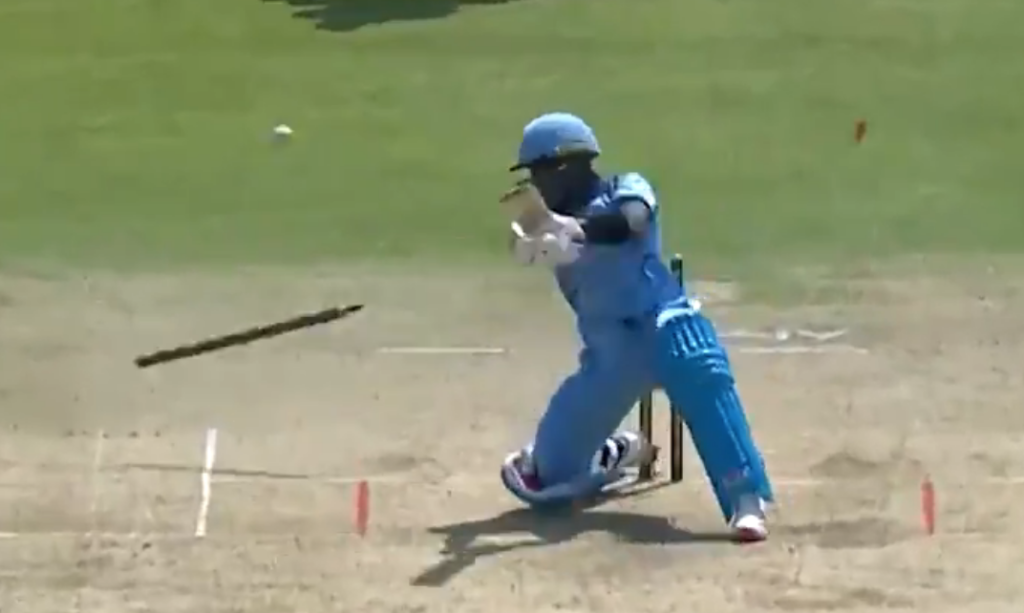The CSA Provincial T20 Knock Out has exposed glaring deficiencies across the board in our cricket, most notably in our batting. It is going to cost the Proteas dearly in the years ahead. An intervention is urgently needed and it starts with Graeme Smith, writes RYAN VREDE.
I’ve watched the batting on display with some dismay. It isn’t that our batters aren’t talented, they certainly are. It is the deficiencies of some of the most fundamental skills required to excel in the T20 format that concerns me most.
The game’s elite T2o batsman have a broad skills set, including but not limited to, the ability to execute unconventional strokes consistently, allowing them to exploit unguarded areas of the boundary.
They have positive rebuttals to variations of pace, length and bowling lines combined with fields set designed to restrict scoring. They are able to manage a target set or run chase with composure, which allows their skill and tactical intelligence to soar.
I just haven’t seen enough of that in the domestic T20 competition currently under way.
In 10 completed matches (two abandoned because of rain) the top-50 batters in the competition have scored just 12 50s. Zubayr Hamza is the only batter to get a century.
Hamza, Rilee Rossouw and Yaseen Valli have been the best of a ordinary bunch, the trio exhibiting the type of skills that should be the base-level expectation for the country’s elite provincial batsmen.
There is clearly a coaching problem, and not just at franchise level. The problem runs deep and extends into the calibre of coaching the current generation of provincial batsmen receive at school/club level, and then later in high-performance provincial set-ups.
This is not to say that South Africa does not have good coaches. It has, but they are in short supply. Players who pass through these coaches’ hands show the fruits of that investment at a professional level. But far too many are subjected to substandard coaching all the way through their careers, including at franchise level.
In mid-September, I wrote that the appointment of unqualified or underqualified former players to high-profile coaching positions has the potential to seriously compromise the players under their tutelage.
I argued: “The notion that being a very good or great player will easily translate into being a successful coach is fundamentally flawed. Some great players develop into successful coaches, but those are extremely rare in any sport.”
Many teams in the domestic T20 competition are coached (including assistant coaches and consultants) by former pros, most of whom have an inadequate amount of coaching experience at an elite level. Some of them will develop into very good coaches. A few may even become great coaches. But history shows the vast majority will be mediocre. Indeed, that mediocrity is being exposed in the most brutal ways when you watch the cream of the domestic crop bat.
I’m concerned that the coaches aren’t the only ones out of their depth. It appears that the CSA Director of Cricket is completely devoid of solutions for a problem he highlighted as far back as 2019.
In an interview with City Press just after his appointment, Smith said: “Then, a particular area I want to look at in South African cricket is coaching. I want to write down the pipeline of high performance in domestic coaching.”
Asked what makes him the right person for the job, he added: “Hopefully, it’s my cricket background in leadership and also, [my experience in] dealing with a lot of structures when I was captaining the national team. I feel that, from a leadership perspective, we can make decisions, we can move, we can get things in place.
“I’m certainly not an administrator. I want to get involved in making the best cricketing decisions to get us back to excellence. My sense is there’s a real lack of leadership at the moment and we need to turn it around. A lot of what I’m saying is a bit blind because I need to get in and spend time with people.”
Smith has had sufficient time to make telling structural changes to the areas he has highlighted as being critical. Yet, his impact seems to be negligible.
Gift Mathe, who is the manager of cricket education at CSA, is completely out of his depth. I know this from speaking to a clutch of different professional coaches who’ve had interactions with him. Smith will know this, too.
Furthermore, the support and career development available to franchise coaches are poor. After I wrote the piece referenced earlier, a current franchise coach contacted me and confirmed this, writing: “… being in the system I have also seen the standard of coach education the coaches get and the interventions in place to help us improve leaves a lot to be desired”.
Smith must be held accountable for a facet of his job he is failing at badly. It starts and ends with him. I understand that this will take time, but Smith is deep into his second year in the role.
He must act decisively in a key performance area of his job or CSA must find someone capable of correcting an issue that threatens the future of South African cricket.







